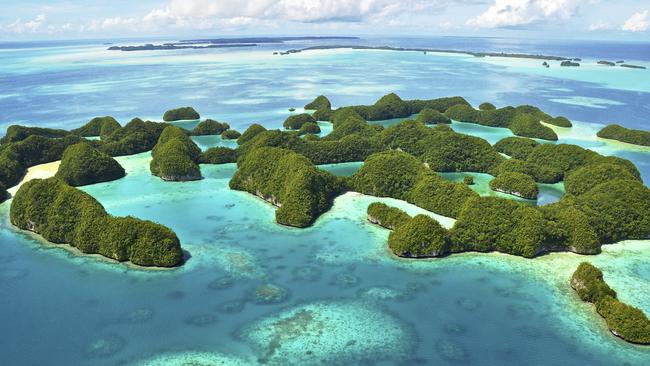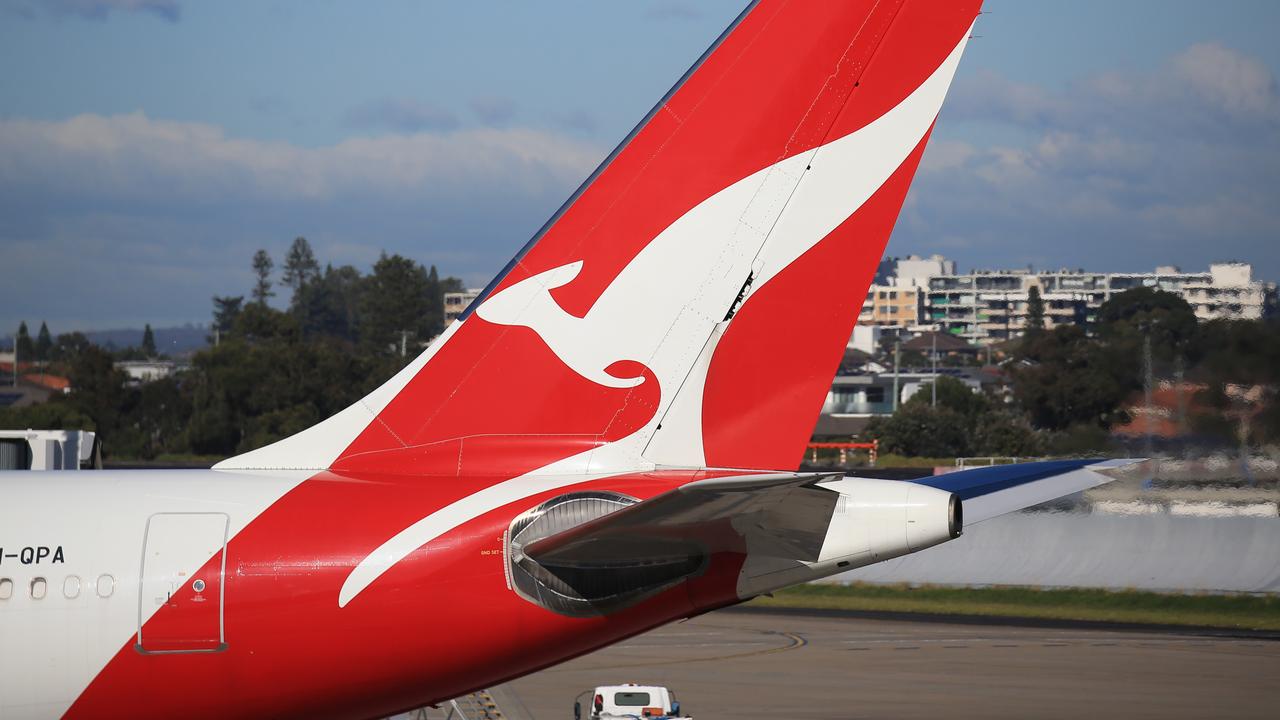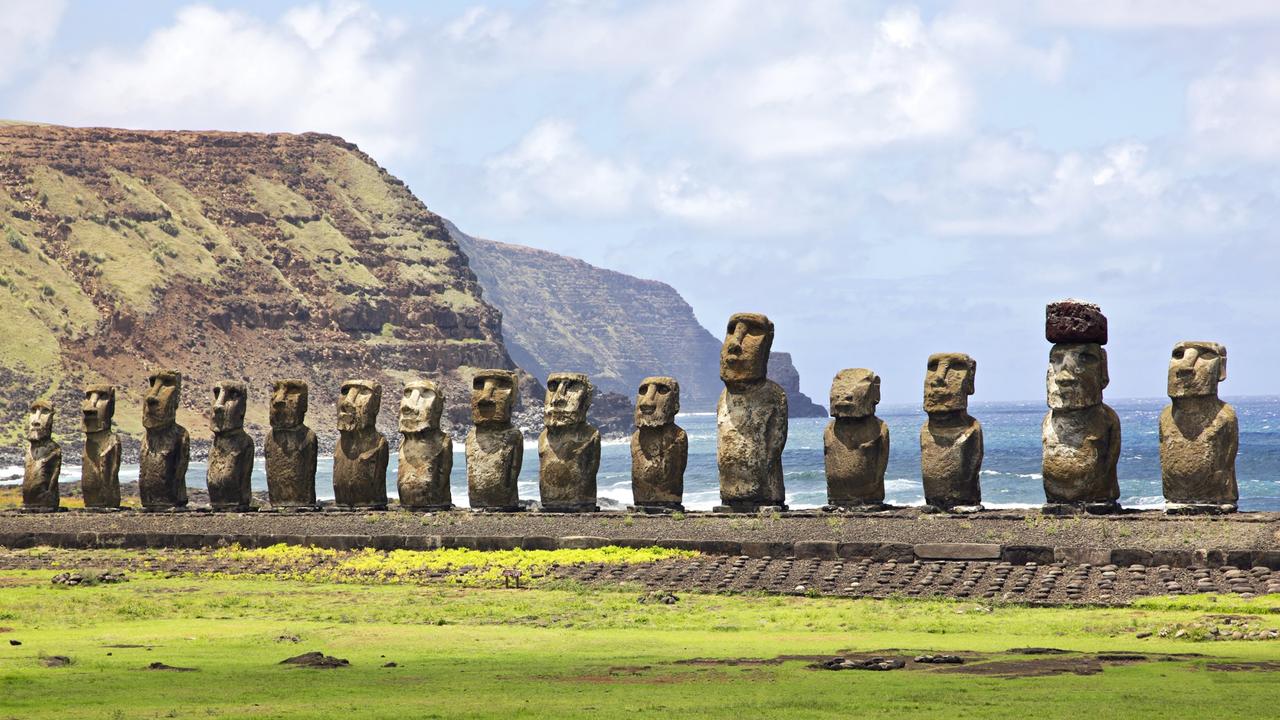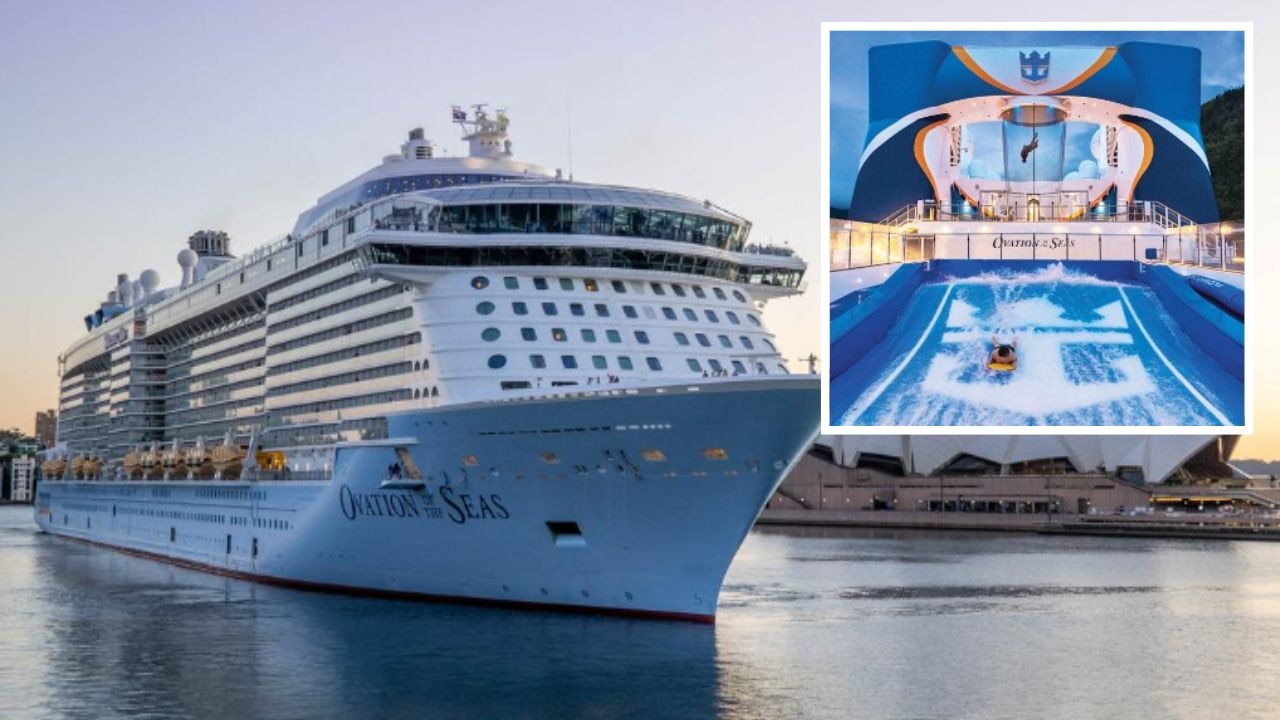Palau islands have been inundated with Chinese tourists
THESE tourists are rolling in cash and now they’re inundating a small island haven. Find out why locals are so furious about it.

CHINESE tourists are flocking to the remote Palau islands as China’s growing number of rich seek new frontiers abroad, but not everyone in the Micronesian paradise is happy about it.
Strapped into life-jackets and screaming with excitement, groups of boisterous Chinese thrillseekers tear around Palau’s “Milky Way” lagoon on a flotilla of speedboats — a spectacle unfamiliar to locals just a few months ago. Residents of the archipelago, part of the larger island group of Micronesia, are baffled as to why Chinese travellers represented almost 62 per cent of all visitors in February — up from 16 per cent in January 2014. For businessman Du Chuang from Chengdu in China’s Sichuan province, it is because his increasingly wealthy countrymen are becoming more adventurous, smashing the stereotype of the herded package tour. Du first started to travel by visiting Hainan, the Chinese island in the South China Sea currently witnessing a massive development of hotel resorts. He then ventured to Thailand before branching out to the Maldives. “The corals here are more beautiful than Sanya (on Hainan),” the 46-year-old told AFP, scrolling through photos on his phone of a $1,400 helicopter trip over Palau’s Seventy Islands that he took his family on. “Palau is small and magnificent,” added the owner of a successful IT company. Hoteliers are catching on, with some establishments focusing on Chinese clientele booked out months in advance. At “Sea Passion Hotel” in Koror, 74 of their 75 rooms were occupied by Chinese visitors when AFP visited. On a beach Chinese women wearing full body suits to protect themselves from the sun pose for selfies with husbands and boyfriends in sleeveless vests, which they send to their friends back home in China’s grey megacities. ‘It’s like paradise’ Jia Yixin, a 30-year-old from Shanghai, didn’t think twice about paying $1,133 (1,000 euros) for a six-day trip to Palau that she found online. “It is like paradise here,” she beamed. ���In Shanghai the air is polluted but here people respect the environment,” Jia added. Ironically it is the potential environmental impact of the Chinese invasion that is at the forefront of the minds of many of the islands’ 18,000 population. Palau welcomed just shy of 141,000 visitors last year, up 34 per cent on 2013, largely on the back of the Chinese visitors. But in February this year, mainland Chinese visitors leaped more than 500 per cent year-on-year to 10,955 — more than half Palau’s total population. Tourism accounts for close to 85 per cent of Palau’s gross domestic product (GDP), and while profits are up, some are worried the long-term damage may be too great. “This is a very sudden influx, so we are trying to understand the situation” said Nanae Singeo, managing director of the Palau Visitors Authority, the local tourist board. “We have never experienced this much tourism before and the magnitude is really giving us a lot of pressure. We are a very tiny country with scarce resources so this sudden increase is an unknown challenge for us,” she added. Palau has long catered for a particular type of visitor, with up to 70 per cent of tourists coming for world-famous diving in stunning blue waters with pristine corals. Japanese were traditionally the largest contingent, followed by Taiwanese and Korean visitors. But the majority of the new wave of Chinese tourists seem more interested — for now at least — in lounging on the beach. “We are not seeing a growth rate to match the number of visitors,” said Singeo. “Tourists are up 34 per cent so technically we should see economic benefits at the rate of 30 per cent or more, but that’s not the case.” ‘They wreck corals’ On the streets of Koror, some accused Chinese people of being noisy and disrespectful towards the environment. “They wreck corals and throw their rubbish in the sea,” chided Norman, a taxi driver. In another recent example, a Chinese tour operator named “Yellow Skin Tour” caused outrage in Palau with leaflets including photos of grinning Chinese tourists holding up turtles they had removed from the water — in one case by its flippers. Residents have also accused Chinese tourists of being responsible for the deaths of some jellyfish at the natural wonder “Jellyfish Lake”. Visitors are encouraged to marvel at the harmless creatures by floating on the surface, but some locals complain that many Chinese lack swimming skills and thrash around, disturbing the wildlife. The Palau government is exploring ways to try to stem the tide of Chinese tourists to the western Pacific Ocean archipelago and this week said the number of charter flights from China would be halved next month. President Tommy Remengesau said the move was not intended to discriminate against any nationality but was to prevent tourism from becoming too reliant on one market. “Do we want to control growth or do we want growth to control us?” he asked reporters. “It will be irresponsible for me as a leader if this trend continues. I am not only looking at the present but, as a leader, I am looking after tomorrow.” But the number of hotels, restaurants and guides in Palau now catering for a Chinese market would suggest that citizens of the world’s second-largest economy are likely to keep coming.



